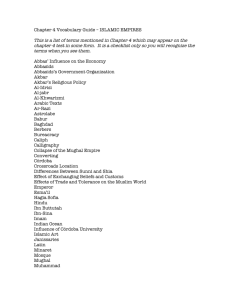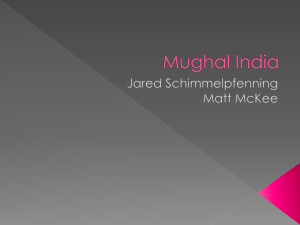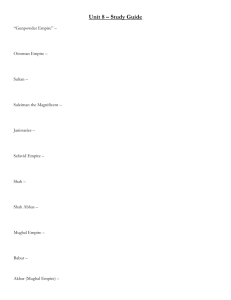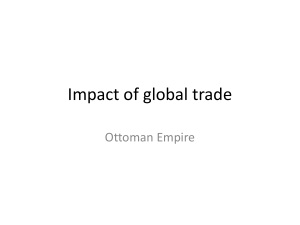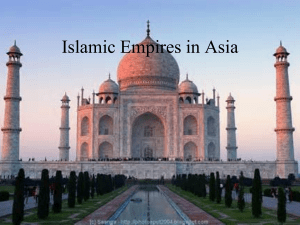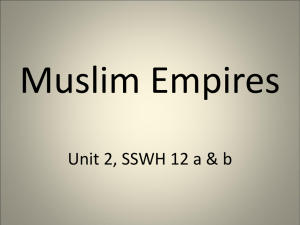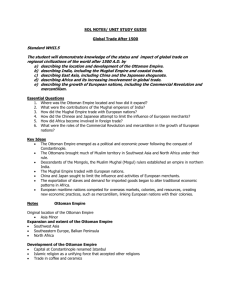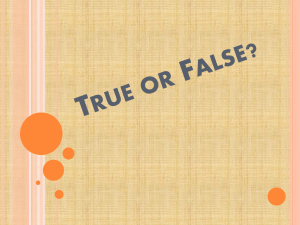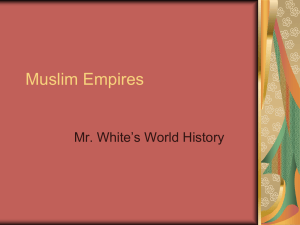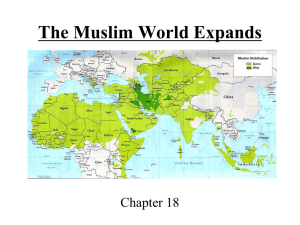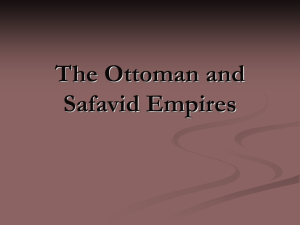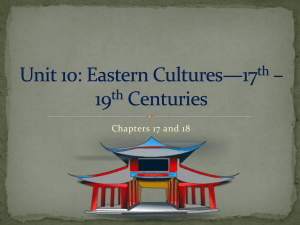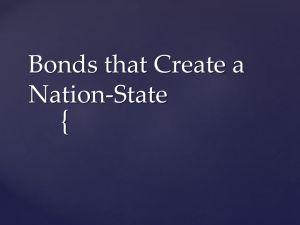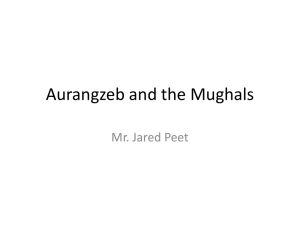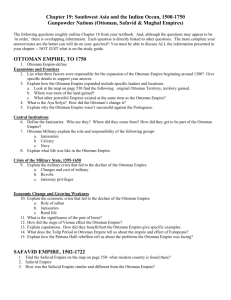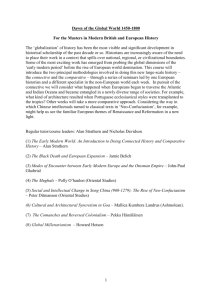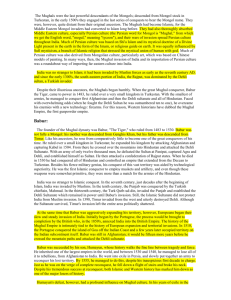Chapter 18 - Falconer Central School
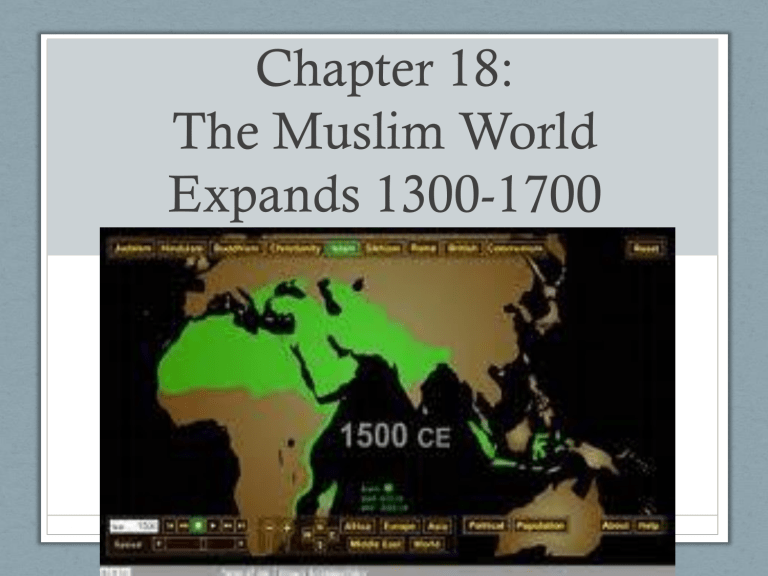
Chapter 18:
The Muslim World
Expands 1300-1700
Vocabulary I
• Ottoman: Followers of Osman
• Sultan: Overlord/One with Power: Title for rulers of the Ottoman
Empire
• Suleiman the Lawgiver: Leader of the Ottoman Empire through its Golden Age
• Janissary: Elite solider of the Ottoman Empire
• Mughal: Nomads who invaded the Indian Subcontinent in the 16 th
• Akbar: “Great One” leader of the Mughal Empire during its
Golden Age
• Taj Mahal: Beautiful tomb in Agra, India. Built by Shah Jahan for his wife Mumtaz Mahal
The Ottomans Build A
Vast Empire
Chapter 18:1
Turks Settle in Christian
Byzantium
• Osman Establishes a State
• Beginning in 1300, Ottoman Turks began to use gunpowder and cannons
• By 1361, the Ottomans had conquered most of Byzantium
• Powerful Sultans Spur Dramatic Expansion
• Mehmet II Conquers Constantinople
• City falls after five week siege, renamed Istanbul, became Islamic capital
• Constantinople 1,000,000 vs. 50,000 (population decrease)
• Why did Mehmet II want Constantinople?
• Mankind: The Story of All of US
• Effects of the Turks taking over Constantinople
Suleiman the Lawgiver
(Magnificent)
• The Empire Reaches its Limits
• Captured southeastern Europe,
(Belgrade)
• Finally stopped at Vienna
• Highly Structured Social Organization
• Sultan was at the top, backed by Islamic converts called janissaries
• Freedom of religion was given to
Christians and Jews
• Many cultural achievements were made, including famous mosques
• Creative Period like the Renaissance
• Art, Architecture, Math, Science
• Law Code : Criminal/Civil Laws
Main Ideas
1. How did the Ottomans expand their empire?
2. Why was Suleiman called the Lawgiver?
3. How powerful was the Ottoman Empire compared to other empires of the time?
The Mughal Empire In
India
Chapter: 18:3
Early History of the Mughal
Empire
• Ongoing Conflicts
• From 600 to 1000 AD, Arab
Muslims conquered more and more Hindu territory
• Constant Warfare
• Babur founds an Empire
• In 1526, he defeated the Sultan of
Dehli, founding the Mughal
Empire
• 11 years old (Uzbekistan and
Tajikistan)
• Swept into India
The Golden Age of Akbar
(Grandson of Babur)
• A Liberal Ruler
• Though a Muslim, he strictly enforced religious freedom
• A Military Conqueror
• Expanded the Empire into central
India, had 100 million people under his control
• Social freedom for jobs
• Income based tax system
• A Flowering of Culture
• Art became important, especially painting
• Literacy increased, and new advances in architecture were made
Akbar’s Successors (1605-
1707)
• Achievements of Successors
• Expanded Mughal Empire to include almost all of Indian
• Problems
• Ended religious toleration of non-Muslims
• Drained resources through constant warfare
• Harsh rule turned people against
Mughal rulers
• Power of local lords and foreign merchants grew
Shah Jahan
• Akbar’s grandson
• Loved two things: Beautiful Buildings/Wife (Mumtz Mahal)
• Arranged Marriage
• Died after 14 th birth
• Ordered a tomb, “as beautiful as she was beautiful”
• 1,000 elephants used
• 20,000 workers
• 22 years
• Changing lights=women’s mood change?
• Marble, jewels, collapsing?
Taj Mahal
Main Ideas
1. How did Akbar demonstrate tolerance in his empire?
2. Why was the Taj Mahal built?

